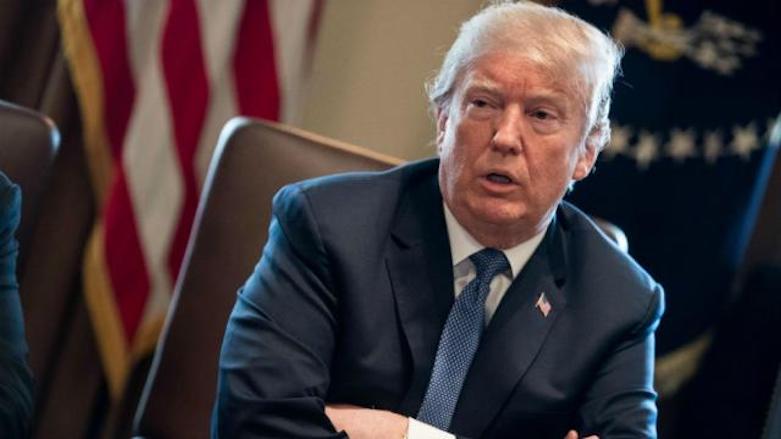Trump: US will protect Kurds, no timetable for Syria withdrawal

At a cabinet meeting on Wednesday, mostly devoted to domestic issues, President Donald Trump made an important statement about the US posture in the Middle East: he will protect the Kurds in Syria, as he withdraws troops from that country.
Trump also affirmed there was no timetable for the withdrawal from Syria, countering aNew York Times report on Monday of a four-month period for the troop withdrawal.
On December 19, following a telephone conversation with Turkish President Recep Tayyip Erdogan, Trump made a surprise announcement that he would be quickly withdrawing US forces from Syria and Turkey would take over responsibility there.
However, Trump modified that decision, following a December 26 visit to Iraq, where he was briefed by US commanders, as Sen. Lindsey Graham (R, South Carolina) explained on Sunday.
Graham described those modifications in general terms, as he affirmed, “I’ve never felt better about where we are headed” in Syria.
Those modificationsincluded a pledge to ensure “that our allies, the Kurds, are protected,” Graham stated.
The cabinet meeting on Wednesday was the first time that Trump, himself, expressed his continuing commitment to Syria’s Kurds, since his surprise announcement of a US withdrawal. That is significant in itself: clear affirmation of what Graham had said.
Trump’s statement was also significant, because he was asked about the timetable for a Syrian withdrawal—and not about the Kurds.
Trump responded to the question, saying, “Somebody said four months, but I didn’t say that,” before he continued on to criticize former President Barack Obama’s weak stance on Syria, which had left him in a difficult position.
Trump could have stopped there, but he continued, adding, “Now the Kurds, it’s very interesting.” Trump went out of his way to explain his continuing commitment to the Kurds.
“Turkey doesn’t like them,” Trump said. But “other people do,” and he concluded: “We want to protect the Kurds.”
In earlier statements, Trump had been extremely supportive of the Kurds. In September, at a press conference in New York, on the sidelines of the UN General Assembly, he described, them as “great fighters. I like them a lot.”
Addressing Kurdistan 24’s Bureau Chief, Rahim Rashidi, as “Mr.Kurd,” Trump added, “We get along great with the Kurds. We are trying to help them a lot.”
However, in Wednesday’s cabinet session, Trump also complained, “I didn’t like the fact that [the Kurds] are selling the small oil that they have to Iran, and we asked them not to do it.”
It was not entirely clear whether Trump was referring to the Kurdish People’s Protection Units (YPG) in Syria or the Kurdistan Regional Government (KRG) in Iraq.
The KRG has significant amounts of oil—and not a small amount. That oil is shipped out of the Kurdistan Region through a pipeline to Turkey.
As for the YPG, geography alone prevents them from selling oil to Iran, a knowledgeable Kurdish source told Kurdistan 24. Theoretically, such oil could be shipped across Turkey to Iran, but Ankara “would never allow it,” he said.
This source did allow that the Patriotic Union of Kurdistan (PUK), one of the two major parties in Iraq, might truck some oil to Iran, but it is “very minimal” and it is done by independent actors and “not through formal or official channels.”
On Wednesday, Trump made clear his frustration with the never-ending “war on terror” that has followed the September 11, 2001, attacks.
President George W. Bush believed that war would be finished during his presidency, but it was not. Obama, his successor, terminated one major part of that war in 2011, namely Iraq, only to find himself compelled to return three years later, as the Islamic State seized one-third of the country.
Of course, Trump faces a similar dilemma. Were he to withdraw precipitously from Syria and the Islamic State return or commit some other major atrocity, the ensuing blame would fall on him as Trump almost certainly realizes.